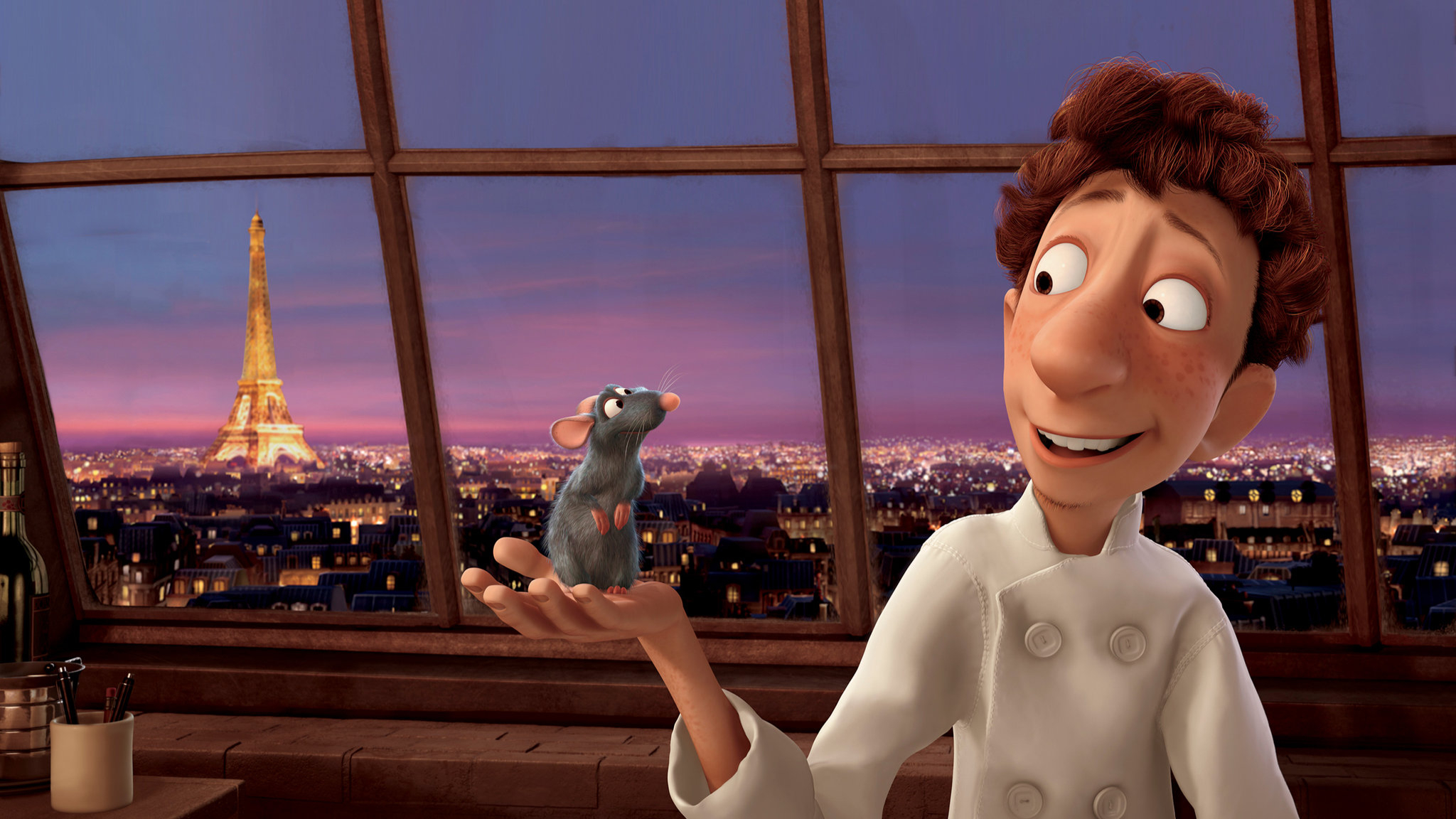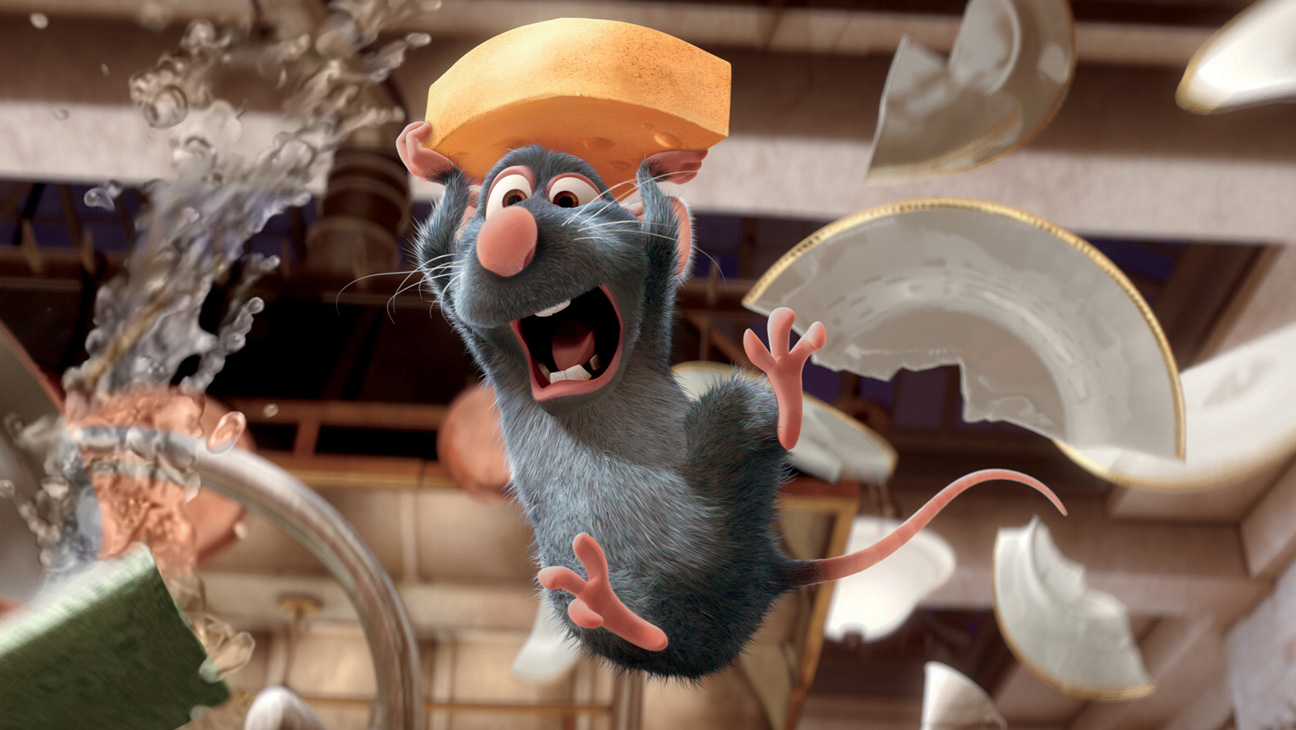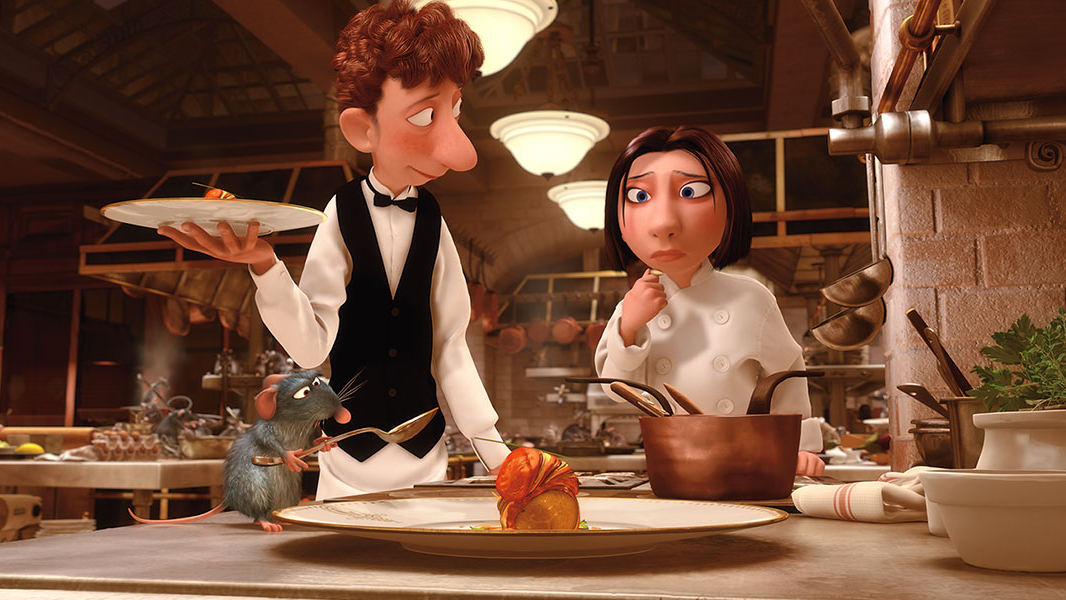Ratatouille is still the best Pixar movie on Disney Plus – here's why

Sign up for breaking news, reviews, opinion, top tech deals, and more.
You are now subscribed
Your newsletter sign-up was successful
Few film studios can boast the commercial and cultural pedigree of Pixar.
Whether through toys, bugs, fish, monsters or even actual human emotions, Disney’s flagship animation house has rarely misfired in its near 30-year quest to capture the hearts and minds of adults and children alike.
With Disney Plus being widely available, subscribers now have access to Pixar’s entire library of movies and animated shorts on demand – and none are more worthy of a revisit than Ratatouille.
- Best upcoming TV shows and movies on Disney Plus
- Disney Plus is already close to hitting 100 million subscribers
- Can you get a Disney Plus free trial?
Co-written and directed by studio mainstays Brad Bird and Jan Pinkava, Ratatouille tells the understated tale of Remy, a Parisian rat with a talent for cooking, in such a way as to elevate the medium of family animation to genuinely artistic filmmaking.
It’s not simply one of those Pixar classics that brings something to the table for viewers young and old, but rather a masterclass in storytelling, humor and cinematography that makes it, for me, the best of the studio’s storied collection of animated pictures.
My fondness of Ratatouille can be boiled down to this: it’s the most remarkable of Pixar movies for being so effectively unremarkable. It’s not full of songs and spectacle like some of its siblings, and it doesn’t try to hit those big emotional beats that other Pixar movies have so effectively touched on to reduce grown-ups to tears.
That’s because the story of a sewer rat with a penchant for parsley is more subtle with its choice of themes, at least when compared to the saccharine-laced narratives we’ve come to expect from the studio.
Sign up for breaking news, reviews, opinion, top tech deals, and more.
Up, for example, is a tear-jerking tale of love and loss (who could forget that opening sequence?), Wall-E a didactic warning against consumerism and Coco a thoughtful examination of culture and death. Toy Story plays on identity and the inevitability of change, while Finding Nemo goes-for-broke on its message of trust and perseverance. All these movies, by the way, are excellent – but Ratatouille is unique because its resonance isn’t bound by the age or experience of its audience.

That’s not to say Ratatouille lacks meaning – Remy’s talent proves we shouldn’t judge a book by its cover – it’s just less reliant on the emotional engagement of the viewer. The themes explored here are universal, and they don’t pre-occupy the entire narrative (despite how many times we hear Gusteau’s old adage, “anyone can cook”). If you’ll allow the wordplay, when it comes to questions of sentiment and morality, Ratatouille provides food for thought without overcooking things.
A feast for the eyes
That means the movie finds other ways of maintaining the attention of its audience. First off, Ratatouille is gorgeous. Really, it’s something of a visual marvel. Despite taking place almost entirely in the brass belly of a Paris restaurant, the Pixar animators did a fantastic job of capturing the romance of the French capital and, in particular, its culinary heart – from the warm yellow hues of bread and cheese to the rich red tones of grapes, tomatoes and wine. If Ratatouille’s goal is to make you appreciate the beauty of food, it achieves this and then some. Who knew carrots could look so delicious?
The score, too, is exceptional. Michael Giacchino’s fast-paced, French-inspired music expertly complements the urgency of the kitchen among a typically-relaxed Paris, and serves to heighten the sense of danger when proceedings do occasionally leave the doors of Gusteau’s. In one sequence, the crooked Chef Skinner (voiced by the late Ian Holm) chases Remy through crowded streets and into the River Seine in what is a perfect example of Ratatouille’s seamless marrying of visuals, soundtrack and storytelling. It’s almost James Bond-like in its construction, and goes to prove that the movie isn’t only concerned with what goes on inside the kitchen.

Ratatouille is also very funny, playing on humor that is more slapstick in tone than any Pixar entry before it. Linguine stumbles around with a goofy elasticity that adds to some of the movie’s most laugh-out-loud moments. This old school approach to joke-making works to create genuinely hilarious scenes to be enjoyed by everyone, regardless of age, much in the same way its aforementioned themes don’t only aim for the grown-ups.
All these elements combine to form a family animation that truly is for all the family. Everything is simple-but-effective here – the story, the art style, the comedy – and is executed in such a way as to meet or exceed the best the studio has to offer elsewhere. Despite being about the plight of an ambitious rat, Ratatouille is a refreshingly human adventure, and a reminder that Pixar doesn’t always need to make us reach for the tissues in its pursuit of an animated masterpiece.
Hell, it’s a movie about a rat that makes ratatouille – isn’t that enough to make it the best?
- Disney Plus is soaring, says Netflix founder

Axel is TechRadar's Phones Editor, reporting on everything from the latest Apple developments to newest AI breakthroughs as part of the site's Mobile Computing vertical. Having previously written for publications including Esquire and FourFourTwo, Axel is well-versed in the applications of technology beyond the desktop, and his coverage extends from general reporting and analysis to in-depth interviews and opinion.
Axel studied for a degree in English Literature at the University of Warwick before joining TechRadar in 2020, where he earned an NCTJ qualification as part of the company’s inaugural digital training scheme.